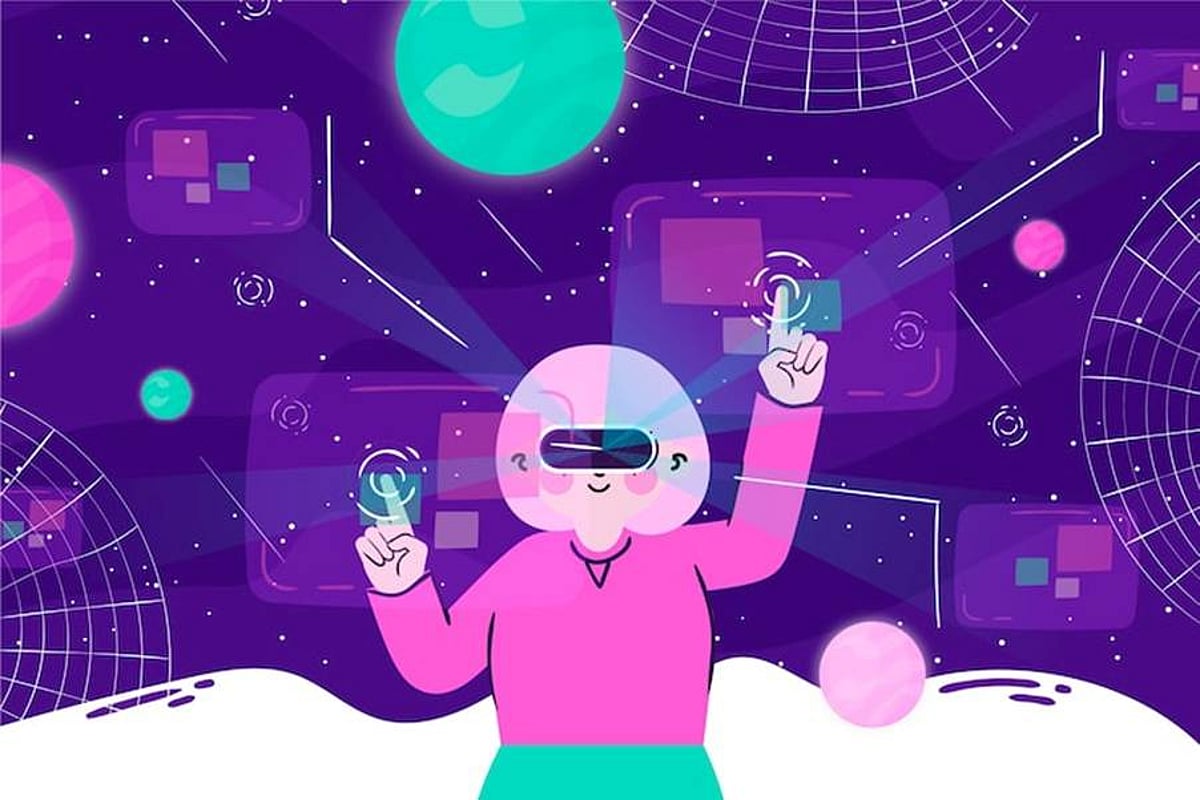With the continued improvement of blockchain games, virtual worlds, and immersive digital ecosystems, AI-driven NPCs are now emerging as transformative elements that redefine how users interact, engage, and participate in virtual economies. These intelligent personas do more than just populate digital spaces – they create dynamic experiences, foster ongoing engagement, and drive meaningful token-based interactions within decentralized platforms. By interacting with player behavior, creating content, and participating in in-game economies, AI-powered NPCs make virtual worlds feel more alive, immersive, and interconnected.
The presented article discusses the impact of AI-powered NPCs on user engagement; As such, it describes in detail their function in relation to token utility and why they are vital in the growth and maintenance of blockchain-powered virtual ecosystems.
Understanding AI-driven NPCs in Web3 ecosystems
AI NPCs are virtual characters capable of having human-like conversations, making decisions, and taking actions autonomously, with situational awareness. While classic NPCs rely on scripted events with predetermined outcomes, AI-enhanced NPCs use techniques such as:
These upgrades allow them to act like real players instead of static items in the game.
In blockchain-based Metaverses, these NPCs become full participants in the economy, interacting with tokens, virtual assets, and decentralized mechanisms for trading, guiding players, creating quests, influencing the market, and stimulating further activity within the ecosystem.
How AI-driven NPCs are transforming user engagement
1. Living worlds with organic interactions
Traditional virtual worlds often seem predictable. AI-driven NPCs are changing this by offering players realistic, spontaneous and adaptive interactions.
Key benefits of participation include:
-
NPCs that respond differently based on user history
-
Personal conversations based on preferences
-
Interactive storytelling, which changes with the player’s choices.
-
Situational behaviors of fear, curiosity, negotiation, humor, or strategy
-
Dynamic responses to real-time environmental changes
Engagement occurs naturally when users feel that the virtual world is evolving with them.
2. Personal player journeys
The most important benefit of AI NPCs is that they can create individual experiences for players. This way, personalization reduces boredom, supports user retention, and makes every user feel important.
Examples of customization:
-
NPCs offer quests based on the player’s skill level
-
Custom difficulty scaling
-
NPCs who work as personal assistants or attendants
-
Learning modules designed specifically for beginners
-
Quest rewards have been optimized for the user’s objectives
Personal journeys are what turn passive users into active participants encryptionGame-based games, where progress is often tied to earning or purchasing tokens.
3. Infinitely scalable content
Human designers cannot create thousands of quests or storylines daily by hand. However, AI-based NPCs are able to generate:
-
New quest chains
-
Character dialogues
-
World building elements
-
Environmental events
-
Seasonal challenges
-
Dynamic puzzles or quests
This makes the platform evergreen. There’s always something new for them to explore, which reduces fatigue and increases platform grip.
4. Improved onboarding process for cryptocurrency beginners
Cryptocurrency platforms are difficult to adopt due to the difficulty beginners face in:
-
Wallet setup is confusing
-
New to familiarize yourself with intimidating token transactions
-
Lots of pressure from in-game mechanics
-
The systems for playing for profit are unclear
AI NPCs can solve this problem by acting as interactive teachers, guiding the user through the process step-by-step in real-time.
AI NPC qualification roles.
-
Explain the use of symbols
-
Teaching key mechanics
-
Helping players prepare wallets
-
Reusable: A guided tour through the market
-
Safety warnings such as avoiding scams
-
Simplify earnings models
It reduces friction and increases newcomer engagement.
How AI NPCs influence token activity in Blockchain ecosystems
AI NPCs do more than just enrich experiences; They directly shape token movement, utility, speed, and economic sustainability.
1. Transactional interaction loops
These AI NPCs can become economic actors, interacting with users and the environment using platform tokens.
Examples:
-
NPC merchants buy/sell items dynamically
-
Auctions controlled by the National People’s Congress of China
-
NPC-driven markets
-
Tasks that require a small entry fee
-
Symbolic distribution of rewards
-
NPC services are priced in tokens
This creates a constant flow of tokens, which grows the economy and makes it more active.
2. Intelligent mechanisms for burning tokens and utility
Burning the token contributes to stabilizing the supply and locking in value in the long term. Automating and balancing these mechanics through AI NPCs can be more efficient than hard-coded rules.
Examples of burns caused by AI:
-
Design tasks with token burning requirements
-
Paid avatar upgrades for weapons or avatars
-
Land or building improvements managed by the National People’s Congress of China
-
DeFi facilities are governed by NPC advisors
This increases the utility as well as the sustainability of the platform’s tokens.
3. Increased use of Metaverse tokens
AI-driven NPCs greatly expand gaming use cases metaverse tokens To a way to:
-
Hire miners or NPC workers
-
Secret areas or environments that can be accessed
-
Pay NPCs to suggest methods
-
Buy AI generated products
-
Take advantage of NPC-managed transportation systems
-
Enter NPC-led PvP or PvE tournaments
Because tokens are integrated into core game loops, users interact frequently and meaningfully with the economy.
4. The missions and rewards directed by the NPC generate economic circulation
AI NPCs can independently create and gift token rewards. This motivates users to complete tasks and creates continuous economic loops.
The most common types of AI NPC tasks:
-
Collect resources
-
Explore hidden areas
-
AI-driven storytelling campaigns
-
Seasonal tasks are time-bound
-
Skills-based challenges
-
Social interactions with other players
Each task brings users back into the ecosystem, increasing the number of daily active users and the number of transactions.





